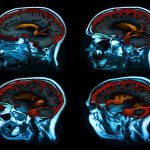
Like influenza, could COVID-19 evolve to wax and wane with the seasons? New research suggests it might. Early in the pandemic, some experts suggested that SARS-CoV-2 — the virus that causes COVID-19 — may behave like many other coronaviruses that circulate more widely in fall and winter. To find out if that could be true, researchers analyzed COVID-19 data — including cases, death rates, recoveries, testing rates and hospitalizations — from 221 countries. The investigators found a strong association with temperature and latitude. “One conclusion is that the disease may be seasonal, like the flu. This is very relevant to what we should expect from now on after the vaccine controls these first waves of COVID-19,” said senior study author Gustavo Caetano-Anollés. He is a professor at the C.R. Woese Institute for Genomic Biology at the University of Illinois at Urbana-Champaign. The same research team previously identified areas in the SARS-CoV-2 virus genome undergoing rapid mutation. Similar viruses have seasonal increases in mutation rates, so the researchers looked for connections between mutations in SARS-CoV-2 and temperature, latitude and longitude. “Our results suggest the virus is changing at its own pace, and mutations are affected by factors other than temperature or latitude. We don’t know exactly what those factors are, but we can now say seasonal effects are independent of the genetic makeup of the virus,”… read on > read on >
















